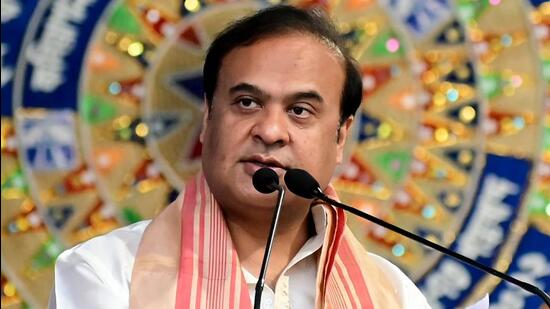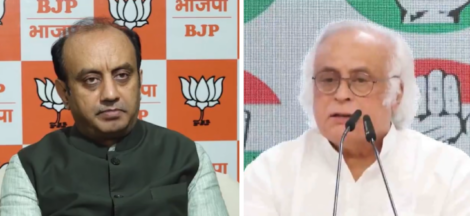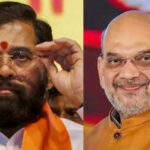Assam Chief Minister Himanta Biswa Sarma has launched a scathing attack on Congress leader Rahul Gandhi and West Bengal Chief Minister Mamata Banerjee, alleging that their political strategies aim to undermine Hinduism. Drawing historical parallels, Sarma invoked Mughal emperor Aurangzeb’s failed attempts to eradicate Hinduism, asserting that contemporary efforts by these leaders would similarly be unsuccessful.
Addressing a gathering in Kolkata, Sarma remarked, “Aurangzeb had vowed to destroy Hinduism, but Hinduism did not end; Aurangzeb ended.” He continued, “Today, I would like to say to Mamata Banerjee and Rahul Gandhi that if they think they can end Hinduism, I would like to tell them that Hinduism will not end. They will end. Hinduism can never end.” This statement underscores Sarma’s belief in the resilience and enduring nature of Hinduism, suggesting that any attempts to suppress it are futile.
Sarma further emphasized the ancient roots and enduring legacy of Hindu civilization, stating, “We have a 5,000-year-old history. Ups and downs are natural. Sometimes TMC will come in Bengal. Sometimes Congress will come in the country. But Narendra Modi will also come.” This comment highlights his perspective on the cyclical nature of political power and the enduring presence of Hindu culture amidst changing political landscapes.
The Assam Chief Minister also expressed concerns about demographic shifts in the region. He claimed that the Hindu population in Assam has declined to 58%, while in West Bengal, it stands at around 65%. Although these figures are contentious and have been debated, Sarma used them to bolster his argument about the perceived threats to Hinduism in these states. He asserted that despite these changes, “Hindu civilization will continue to remain and flourish.”
Sarma did not limit his critique to Gandhi and Banerjee. He also targeted the Left and liberal factions within Indian society, labeling them as the “biggest danger” to Hindus. He alleged that these groups, along with Banerjee, have contributed to the weakening of Hindu society. “I believe that the Left and the liberals are the biggest danger to the Hindus,” he stated, suggesting that internal ideological divisions pose significant challenges to the community.
Highlighting recent policy changes under Prime Minister Narendra Modi’s administration, Sarma pointed to the construction of the Ram Temple in Ayodhya after 500 years and the abolition of triple talaq as indicators of a resurgence in Hindu cultural and religious identity. He suggested that the time has come for the existing Waqf law to be reconsidered and hinted at the potential implementation of a Uniform Civil Code in the country. “The signs of Uniform Civil Code coming in the country are also being seen,” he noted, indicating a push towards uniformity in personal laws across religions.
In response to Sarma’s remarks, the Trinamool Congress issued a sharp rebuttal. Party leader Kunal Ghosh dismissed Sarma’s comments as “nonsense” and accused the Bharatiya Janata Party of engaging in divisive politics based on religion. Ghosh emphasized that in West Bengal, development schemes are implemented without religious discrimination, reflecting the inclusive governance model of Mamata Banerjee’s administration. He stated, “His party does Hindu, Muslim, and Christian [politics]. But this is Bengal; here Hindus, Muslims, and Christians are all supporters of Mamata Banerjee… Entire Bengal supports her because the development schemes here do not have the name of any religion on them.”
Ghosh further highlighted Banerjee’s efforts to promote cultural inclusivity, citing her support for Durga Puja committees, including increased funding during the COVID-19 pandemic—a move that faced opposition from the BJP. “For example, in Bengal, Mamata Banerjee funds every Durga Puja committee to promote Durga Puja. During the time of Corona, the funding was increased and the BJP opposed it… Now they are giving statements. Himanta Biswa Sarma should not be involved in all of this now,” Ghosh remarked, underscoring the TMC’s commitment to cultural and religious harmony.
These exchanges come against the backdrop of a politically charged environment in India, where debates over secularism, religious identity, and cultural preservation are increasingly prominent. The BJP, under Modi’s leadership, has often been accused by opposition parties of promoting a Hindu nationalist agenda, while the BJP contends that it is merely preserving India’s cultural heritage.
Sarma’s comments also reflect broader concerns among certain political factions about demographic changes and cultural preservation. The reference to historical figures like Aurangzeb serves to draw parallels between past and present challenges faced by the Hindu community, framing contemporary political opponents as part of a long lineage of adversaries.




 Shinde’s Secret Meeting with Shah Sparks Storm
Shinde’s Secret Meeting with Shah Sparks Storm 